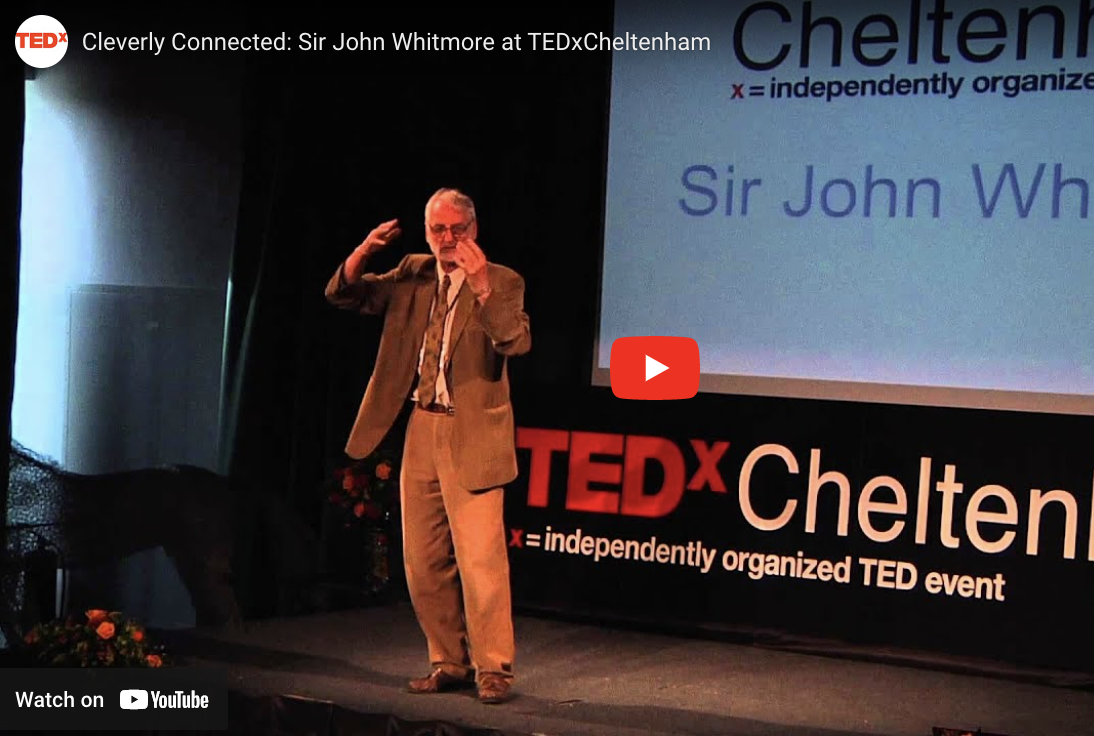What to do if you want to change the world

Originally published by Rosanna Hunt – 23rd February 2018

Sir John Whitmore was the son of parents who dedicated themselves to the purpose of serving humanity during the Second World War. He observed a recent trend away from serving humanity (often heightened in times of crisis) towards an obsession with the acquisition of “stuff”.
Some of this stuff includes “knowledge”. He believed that we have prioritised the quantity of our knowledge over the quality of our wisdom.
Sir John, who invented the GROW coaching model, said that wisdom comes to us when we tell and hear stories – metaphorical stories. He noted that schools don’t educate through stories, they educate by testing the acquisition of knowledge. “Has our lack of wisdom led us to the economic and environmental crisis we now find ourselves in?” he asks in the TEDx talk below.
Listening to this talk, has led me to realise that our modern-day environment COULD provide us with opportunities to change the world. Our modern workplace environments massively influence people’s perceptions of the power they have in this world. The workplace provides a platform for connectivity, conversation, influence and change (or not – depending on the culture). Research also shows that pursuing a purpose through work is the number one priority for the younger generations.
Is the modern-day workplace our ticket to a successful future? Only if we use the workplace environment to create the conditions for change. Building self-responsibility through the modern-day workplace can be done through social leadership, coaching conversations, and encouragement to pursue personal and shared purpose. This is our opportunity to get people to recognise that they can and must get more self-responsible in their lives. By building self-responsibility into the workplace, we will improve workplace performance, reduce absenteeism, presenteeism and increase well-being (oh, and change the world).
Sir John sadly died in 2017 but leaves both an incredible legacy and hope for the future.
Cleverly Connected: Sir John Whitmore at TEDxCheltenham
TWEETS ON THIS SUBJECT
